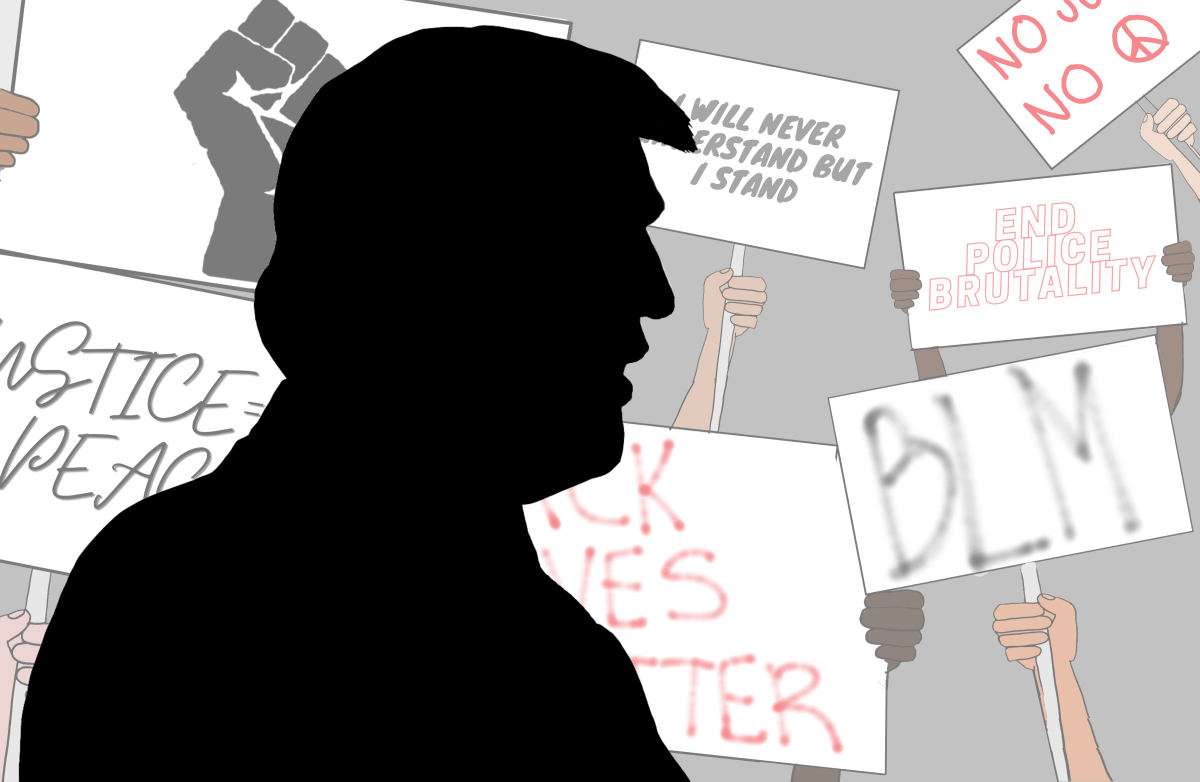The election of U.S. President Donald Trump in 2016 bothered Arnold Farr, but it did not surprise him.
“Racism is nothing new,” said Farr, Ph.D., professor of philosophy at the University of Kentucky. “It is not new with Trump. People are just bolder in their racism because of Trump.”
In fact, the historical context of politics and racism being deeply embedded in American society paved the way for President Trump’s election, noted Farr, who was a professor in the Philosophy Department at St. Joe’s for 12 years and was the founding director of the university’s Africana Studies Program.
Farr spoke with St. Joe’s students on Oct. 9 in a Zoom event titled “White Nationalism and Racism in the Trump Era.” The event, a student-only Q&A session, was planned and organized by Audre Brokes, Ph.D., professor of philosophy, and Michael Kates, Ph.D., professor of philosophy.
Farr told students that over the course of Trump’s administration, the president has enabled white supremacist groups to become visible. Farr said he believes President Trump’s refusal to blatantly condemn white supremacist groups perpetuates further racism.
“This allows [white people] with subtle and tactical forms of racism to say, ‘Well, I’m not racist because my racism is not visible and intentional,’” Farr said.
White nationalism is a result of white supremacists building a protective hedge around the privileges that accompany whiteness, Farr explained.
“In these white supremacist groups, the attitude is that this country is theirs, and nobody else’s,” Farr said. “Everybody else is trespassing, and even though [Black people] have grown from being slaves, somehow this country is not ours.”
What happens then, Farr said, is that white supremacy and white nationalism lead to the silencing of Black voices and Black pain. He pointed to criticism of the Black Lives Matter movement as an example of that silencing, and a double standard.
“Black people can be victimized at any moment through acts of violence, but America wants them to peacefully protest,” Farr said. “No one talks about these thriving Black communities throughout American history that were burned down by racists.”
Some students asked Farr how to be more cognizant of their white privilege within the St. Joe’s community, one that is predominantly white.
Stephanie Zellner ’22, co-president of SJUPride, asked how she could decentralize her own whiteness without speaking over people of color as a student leader on campus.
“I don’t want to speak for people without amplifying their voices, but at the same time I am in a position where I do have a platform,” Zellner said.
Farr said he learned from a colleague that one way to better understand white privilege is to think of it as “white priority,” where white people are given a “benefit of doubt” in many settings.
“When you’re white and you’re in a certain space, you belong there,” Farr said. “When you’re a person of color and you’re in that space, people get suspicious that you don’t belong.”
Farr recalled an example during his tenure at St. Joe’s that involved a faculty member of color.
“When I was at St. Joe’s, I knew of a female professor who was on her way to teach a class, and a white man came out of the restroom to inform her that the bathroom is out of toilet paper,” Farr said.
Victoria Myers ’22 said in conversations about race, parties should engage in dialogue, as opposed to people of color always being the educators.
“We create this culture where it’s always a person of color’s [job] to educate everyone else on an issue instead of participating in a dialogue with others while sharing their authentic experiences,” Myers said.
Farr agreed that progress will not be made unless people are willing to engage in uncomfortable conversations about race that aren’t superficial.
“White people have to be willing to have serious conversations about race to solve problems,” Farr said. “If you’re not uncomfortable talking about race, we’re not getting anywhere.”














































